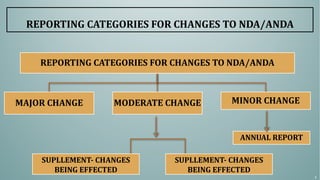
Navigating Change: Regulatory Transformations in the USA

Navigating Change: Regulatory Transformations in the USA
Regulatory changes play a pivotal role in shaping the economic, social, and business landscape of a nation. In the United States, ongoing regulatory transformations are impacting various sectors, influencing policies, and prompting businesses to adapt. This article explores the dynamics of regulatory changes in the USA and their far-reaching implications.
Evolving Economic Policies: Impact on Business Landscape
The USA has experienced shifts in economic policies that bring about regulatory changes. These changes influence taxation, trade agreements, and financial regulations, impacting businesses across sectors. Entrepreneurs and corporations must stay abreast of these evolving economic policies to navigate the changing landscape and make informed strategic decisions.
Financial Sector Reforms: Navigating Regulatory Frameworks
Within the financial sector, regulatory changes are a constant as authorities seek to enhance stability and protect consumers. Reforms in banking regulations, investment practices, and financial reporting standards require institutions to adapt swiftly. The evolving regulatory frameworks shape the way financial entities operate, influencing everything from lending practices to risk management strategies.
Environmental Regulations: A Focus on Sustainability
Environmental concerns have led to regulatory changes aimed at promoting sustainability. The USA is witnessing shifts in environmental regulations that impact industries ranging from energy to manufacturing. Companies now face stringent standards related to emissions, waste disposal, and sustainable practices, reflecting a broader commitment to environmental stewardship.
Technological Advancements: Addressing Digital Challenges
In the digital era, technological advancements often outpace existing regulations. As technology continues to evolve, regulatory changes in the USA are addressing digital challenges related to data privacy, cybersecurity, and emerging technologies like artificial intelligence. Striking a balance between fostering innovation and ensuring consumer protection remains a key regulatory focus.
Healthcare Reforms: Adapting to Changing Demands
The healthcare sector undergoes continuous regulatory changes to adapt to evolving societal needs. Reforms aim to enhance accessibility, affordability, and quality of healthcare services. Regulatory shifts influence aspects such as insurance coverage, pharmaceutical regulations, and the use of technology in healthcare delivery, impacting both providers and consumers.
Labor and Employment Laws: Ensuring Fair Practices
Labor and employment laws in the USA undergo adjustments to align with changing workplace dynamics. Regulatory changes address issues such as remote work policies, discrimination and harassment prevention, and employee benefits. Staying compliant with these evolving laws is crucial for businesses to foster a fair and inclusive work environment.
Consumer Protection Measures: Enhancing Rights
Regulatory changes often include measures to enhance consumer protection. From product safety standards to transparent business practices, regulations aim to safeguard the rights and interests of consumers. Businesses must be vigilant in ensuring compliance with these measures to build trust and maintain positive relationships with their customer base.
Trade Policies: Navigating Global Dynamics
In the realm of international trade, regulatory changes have a significant impact. Trade policies, tariffs, and international agreements undergo adjustments to address global economic shifts. Businesses engaged in international trade must navigate these regulatory changes to optimize their supply chains and maintain competitiveness in the global market.
Telecommunications Regulations: Facilitating Connectivity
The telecommunications sector is subject to regulatory changes that facilitate connectivity and technological advancements. Changes in spectrum allocation, net neutrality rules, and competition policies shape the landscape for telecommunications companies. Adapting to these regulatory shifts is essential for businesses operating in the rapidly evolving telecommunications industry.
Navigating Change with careerth.com
In conclusion, regulatory transformations in the USA are dynamic and impact various aspects of the nation’s economic and social fabric. To explore more insights and stay informed about Regulatory Changes in the USA, visit careerth.com. As the regulatory landscape continues to evolve, businesses and individuals alike must stay proactive, adapting to changes and leveraging opportunities that arise in this ever-changing environment.
